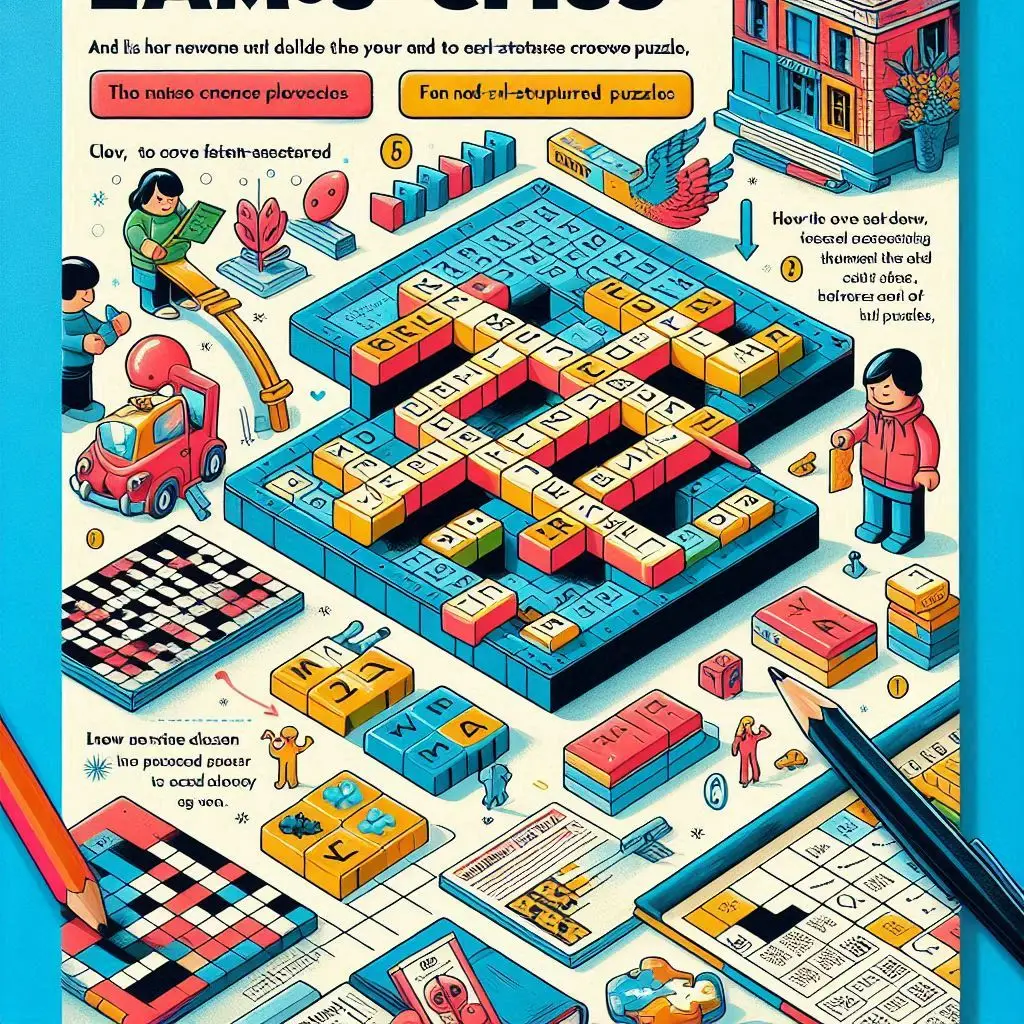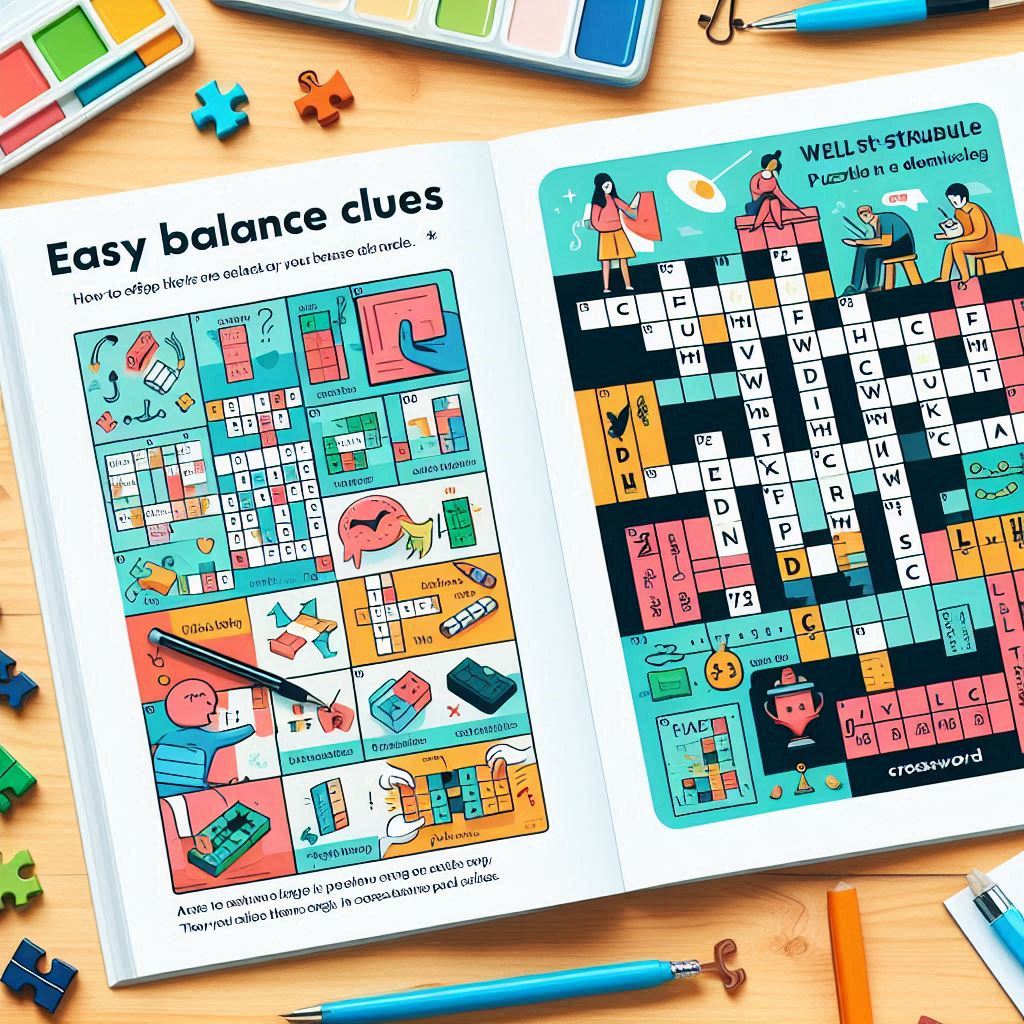Balancing clues in easy crossword puzzles is essential to creating a satisfying and engaging experience for solvers. Even in beginner-level puzzles, poorly balanced clues can lead to frustration, guesswork, or lack of motivation. Striking the right mix of simplicity, variety, and challenge ensures that solvers feel confident while still exercising their cognitive skills. Here are six essential strategies for balancing clues in easy crossword puzzles.

1. Mix Short and Long Words Thoughtfully
A common mistake in easy crossword puzzles is using only short words, which can make the puzzle monotonous, or only long words, which can overwhelm beginners.
Strategy:
- Include a combination of 3- to 5-letter words alongside slightly longer words.
- Ensure that longer words intersect with shorter ones to provide hints and ease solving.
Impact:
This balance keeps the puzzle engaging, reinforces pattern recognition, and provides natural support for learners as they fill in intersecting letters.

2. Balance Literal and Slightly Challenging Clues
Even in easy puzzles, all clues should not be purely obvious. Including one or two slightly tricky but logical clues adds interest without frustrating the solver.
Strategy:
- Prioritize straightforward, literal clues for the majority of the grid.
- Introduce one or two clues that require a small step of reasoning, such as synonyms or common phrases.
Impact:
This approach maintains the puzzle’s accessibility while encouraging problem-solving skills and keeping solvers engaged.
3. Ensure Even Distribution Across Themes
Many easy crossword puzzles rely on categories or themes, such as animals, colors, or household items. Clues should be evenly distributed so that no single section is overly concentrated with similar words.
Strategy:
- Avoid clustering all animal names or color words in one area of the grid.
- Mix categories throughout to maintain a sense of variety and rhythm.
Impact:
Even distribution prevents boredom, maintains solver interest, and ensures that each section contributes to the overall balance of challenge and clarity.
4. Maintain Consistency in Difficulty Level
Consistency is key in easy crossword puzzles. Abrupt shifts from very simple to unexpectedly difficult clues can discourage beginners.
Strategy:
- Review each clue to ensure it matches the intended difficulty level.
- Avoid overly obscure words or phrases that require external knowledge.
Impact:
Consistent difficulty ensures a smooth solving experience, building confidence and reinforcing learning without unnecessary frustration.
5. Provide Natural Hints Through Letter Intersections
Intersections are a powerful tool for balancing clues in easy crossword puzzles. Words should overlap in a way that provides natural hints for more challenging entries.
Strategy:
- Position longer or less obvious words to intersect with easier, high-confidence words.
- Ensure that each letter contributes to at least one other word, maximizing clue reinforcement.
Impact:
This strategy reduces guesswork, strengthens pattern recognition, and allows solvers to approach the puzzle systematically, improving both spee
6. Review Clues for Clarity and Redundancy
Even simple clues can become confusing if poorly worded or redundant. Repetition of the same phrasing or similar words can reduce engagement.
Strategy:
- Edit clues for brevity, clarity, and distinctiveness.
- Ensure each clue presents a unique challenge without unnecessary overlap.
Impact:
Clear and varied clues create a smoother solving experience, enhancing enjoyment and ensuring that the puzzle is perceived as fair and accessible.
Balancing clues in easy crossword puzzles is both an art and a science. By mixing short and long words, combining literal and slightly challenging clues, distributing themes evenly, maintaining consistent difficulty, leveraging intersections, and ensuring clarity, puzzle creators can design grids that are engaging, educational, and satisfying to solve.
A well-balanced puzzle allows beginners to build confidence, enjoy the challenge, and develop problem-solving and vocabulary skills simultaneously. When clues are thoughtfully balanced, easy crossword puzzles become more than a pastime—they transform into a rewarding mental exercise that motivates solvers to return for more.